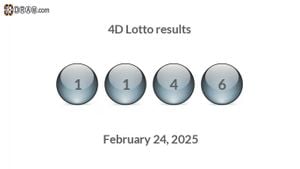The French television scene is undergoing significant transformation as networks strive to revitalize their programming and capture the attention of viewers. With the growing competition from streaming services like Netflix and Amazon Prime Video, traditional broadcasters are compelled to rethink their content strategies. The current television season is marked by innovative offerings as various channels work to adapt to the shifting preferences of the audience.
Leading the charge are both national and local networks, each seeking to appeal to diverse demographics with fresh ideas and engaging content. The initiatives are not merely responses to ratings but represent broader changes aimed at reinvigor siding content creation across the board, ensuring it remains relevant to contemporary viewers.
Television expert Jean Dupont notes, "French viewers are increasingly drawn to innovative formats and diverse storytelling." His insights correlate with the visible trends as channels introduce new series, documentaries, and themed programming to meet the burgeoning demand for fresh perspectives.
Among the various channels, public broadcaster France 2 has emerged as a key player, featuring compelling narratives and engaging shows. They have rolled out multiple new series intended to attract families during prime-time hours. One of their standout programs centers on historical documentaries, offering viewers rich insights, often accompanied by high production values.
Private networks have not been idle, either. Notably, TF1 has made headlines by investing heavily in scripted television. Their recent launch of engaging dramas has proven successful, reflecting the changing habits of television consumption. Their executives have recognized the need for such initiatives; as network executive Marie Claire articulates, "Competition with streaming platforms necessitates our evolution." This self-awareness and proactive approach is fueling the ambition of channels to not only retain but grow their viewer base.
Further illustrating this shift, several traditional broadcasters are replicatively modifying their formats, ensuring they cater to dynamic interests across generations. For example, family-friendly games and rich storytelling are being emphasized as part of efforts to create shared viewing experiences. This strategy not only helps to keep television relevant but also cultivates community and family engagement.
Emphasizing local flavor, some networks are investing more deeply in regional programming, showcasing talent and stories drawn from various parts of France. By providing platforms for local artists and shows reflecting regional culture, networks can tap directly to their viewers' nostalgic sentiments and interests.
The lineup of upcoming shows indicates an exciting year for French television, promising to be filled with diverse genres. Family initiatives, investigative journalism, and historical recounts are just the beginning of what viewers can expect. This redefined programming strategy could be pivotal for the networks, as the appeal not only lies within the visual spectacle but the underlying narratives engaging viewers at emotional levels.
One cannot overlook the impact of these fresh approaches on future television trends as networks strive for sustainability. Increased investment and creativity will likely produce positive outcomes, contributing to broader discussions about cultural representation and storytelling. While traditional television experiences some challenges, the innovative mindset exemplified by French networks is commendable.
With revamped programming on the horizon, it remains to be seen how these channels will balance creativity with audience engagement. The possibilities are endless, and as France’s media world adjusts to its new realities, viewers can look forward to just how these changes will enrich their viewing experiences.



